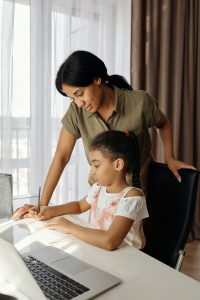 Parents of schoolchildren across Texas have experienced total upheaval since the COVID-19 lockdowns began in March last year. Since then, not much has improved. As the 87th Legislature prepares to consider legislation, we urge members of both chambers to pass a strong education reform bill enacting real school choice for all Texans.
Parents of schoolchildren across Texas have experienced total upheaval since the COVID-19 lockdowns began in March last year. Since then, not much has improved. As the 87th Legislature prepares to consider legislation, we urge members of both chambers to pass a strong education reform bill enacting real school choice for all Texans.
With schools across Texas modifying their classrooms to meet lockdown regulations, droves of parents have abandoned traditional neighborhood public schools and chosen alternative means of educating their children. In the wake of mass restructuring of the economy and its resulting impact on the ability to both work and manage their childrens’ education, parents are giving historic levels of consideration to more flexible types of schooling.
Among the most popular alternatives have been homeschooling, private school (for those who can afford it), learning pods, and charter schools; all of which must fight against special interest groups simply to exist.
Charter schools often provide a quality public education option apart from the traditional public school experience and offer more flexibility in large part because they are smaller and more easily adaptable to change. Because of this flexibility, charter schools are seeing increased enrollment numbers, while neighborhood schools have declined an average of 3%. However, due to the few number of available seats, charter schools can be difficult to get into. Now more than ever, parents are in search of freedom regarding how to educate their children.
Homeschooling is an attractive option to many parents dissatisfied with traditional public education, and it is an option that was already gaining popularity before the COVID-19 pandemic. Still, for parents in dual income families, or single working parents, homeschooling was not necessarily an option before the pandemic. Now, with many out of work or working from home, withdrawal from public school and handling education at home has become a viable option. Still, homeschooling done right is not without cost, and indeed not necessarily cheap. For many parents, the cost of homeschooling is still a significant barrier to entry.
Private schools offer high quality education in an environment that is generally more flexible than public schools, but they are very expensive and only available to those with sufficient means to pay tuition while simultaneously paying property taxes to fund the public schools their children no longer attend. For most, this is financially out of the question.
Learning pods are essentially a hybrid of private and home schools. They are co-ops built by a handful of families banding together and meeting in homes or other communal places. In some cases parents take on the role of teaching, and in other cases families hire professional educators such as retired teachers or current public school teachers looking for an alternative to the virtual teaching experience. This offers the best of all worlds for parents who find that traditional public schools no longer meet their needs but do not have the time to homeschool or the financial means to afford private school.
Mostly popularized during the pandemic, these pods often pay more than public schools can for teacher services . While research is still being collected on the exact figures of pod formations, current administrators (whose funding is closely tied to how many students are enrolled with them) worry many of the students in pods will choose not to return to their public schools once the pandemic is resolved.
Ultimately the goal of education in Texas should be to ensure that we have a well-educated public, regardless of where education is achieved. Policy choices should not be based on the desires of powerful special interests, but based on providing education opportunities that work for all Texans. In these difficult times, parents should not have to choose between going to work and monitoring their child’s virtual education. Every parent in Texas should be equipped with the full range of education options through a robust school choice program. Such a program should ensure that education funding follows the student whether that be to traditional public school, a charter school, homeschool, co-op, learning pod, private school, or any other configuration that offers educational opportunity consistent with the needs of parents and students.
We encourage the 87th Legislature to support parents and students by enacting school choice this year for the benefit of all.
